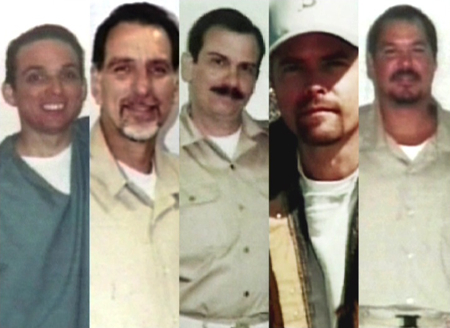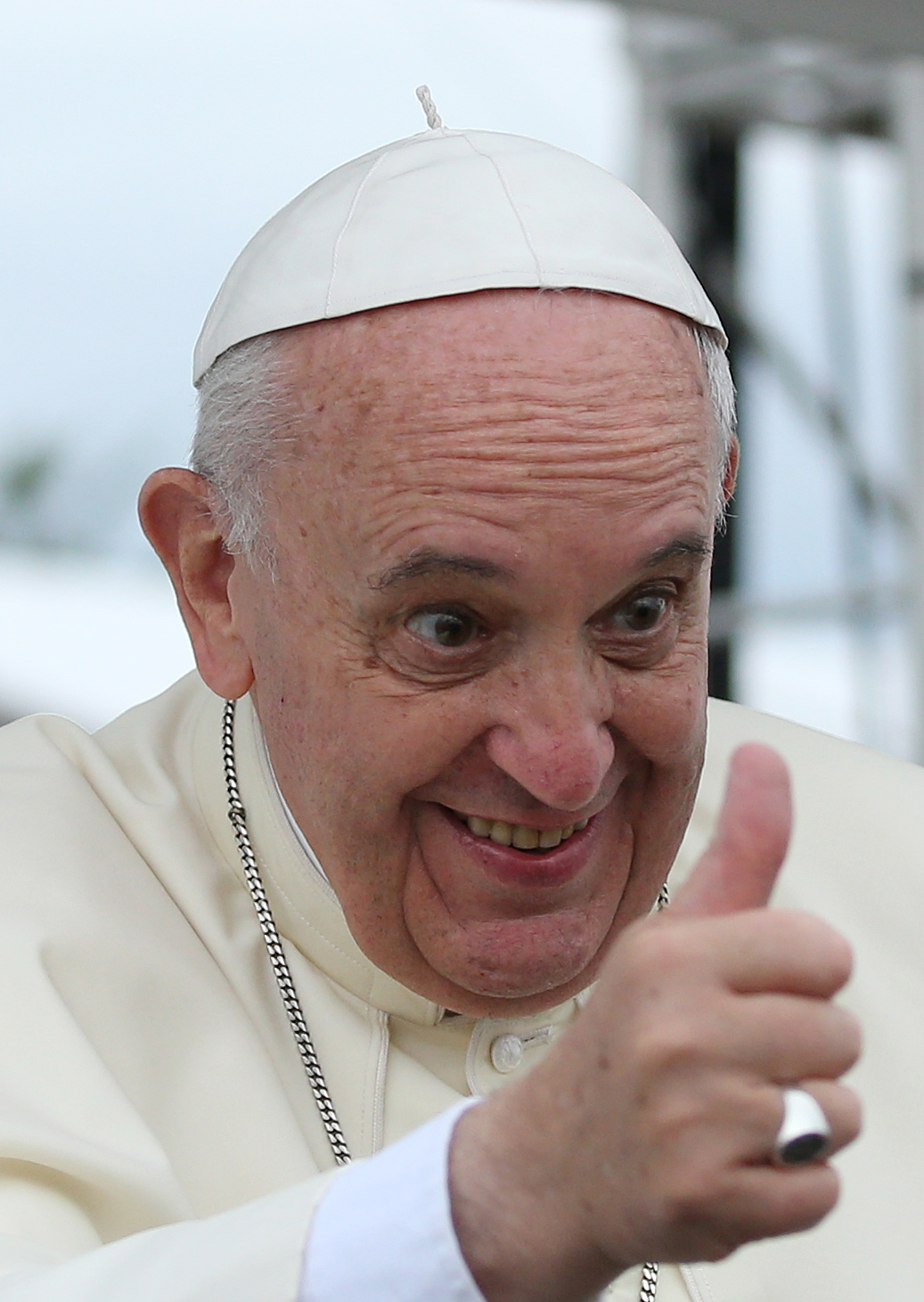
FEATURES:
Newfoundland’s Offshore Account. Photo-essay by Greg Locke/F&O (subscription*)
The few oilfields off the coast of Newfoundland, Canada, in the Northwest Atlantic, are small compared to the hundreds of producing wells in the North Sea and Gulf of Mexico, but the royalties not only kept Canada’s historically-impoverished and remote eastern province from bankruptcy, but propelled it into a Canadian economic hot spot. That is, until oil prices plummeted in the fall of 2014. Now, Newfoundland is learning the reality of having more than thirty percent of its revenue dependent on oil royalties.
The Animal “Kingdom of the Dead.” By Deborah Jones/F&O
All the attention on killer whales — the grotesque mutilation of a dead female named Rhapsody in Canada, the controversies over their use in trained-animal shows, the orphans who turn up periodically — has done no more to save a unique population of Orcinus orca than it has helped to slow pandas and polar bears and elephants on their own slides toward extinction. And that brings us to the fact that Rhapsody’s story is one small part of a far bigger saga: the Sixth Great Extinction in the history of the world.
Mummers the Word. Photo-essay by Greg Locke/F&O

In Canada’s most eastern province, and the first colony of the once-mighty British Empire, Newfoundland’s cultural revival has recently included the dark art of summering. With roots in the pagan, Anglo-Saxon and Celtic cultures that celebrated the winter solstice and Samhain, mummering became a local folk arts variant, evolving with it own traditions. In the small and remote Newfoundland fishing villages, it was the seasonal Christmas entertainment, for the traditional 12 days of Christmas ending on Old Christmas Day of January 6. People dressed in makeshift disguises and roamed each village, knocking on doors and demanding entry. Inside they would sing, dance and play music in exchange for food and drink … but mostly drink, fueling the darker and rowdier possibilities before the evenings wore out.
$50 billion ‘moon shot’ targets Mississippi Delta restoration. By Bob Marshall, Al Shaw, Brian Jacobs/Lens & ProPublica
As Brig. Gen Duke DeLuca wrapped up his 32-year career with the U.S. Army Corps of Engineers in August, he contemplated the key to Louisiana’s massive, 50-year, $50 billion effort to prevent the southeastern portion of the state from being swallowed by the Gulf of Mexico. DeLuca, an expert on the many threats facing the coast, said: “It will take a moon-shot type of investment in the science.” Many in Louisiana’s coastal scientific community believe DeLuca’s description is right on the mark, capturing the undertaking’s daunting uncertainties. The mission could not have been set on a more challenging landscape, at a more inopportune time.
IN ARTS:
Hey, Hey We’re the Monkees: Michael Nesmith/F&O

According to the gossip of the day, the Monkees couldn’t play their own instruments. They were a band made to order for American television: Artificially manufactured to appeal to teenagers who had flocked to see the Beatles’s movies A Hard Day’s Night and Help! Michael Nesmith lent credence to the non-playing rumours in 1967 when he called a press conference in New York to declare that this ersatz TV band – in which he mimed playing guitar – was just a bunch of singing actors backed by uncredited studio musicians. “We’re being passed off as something we aren’t.”
Are children’s books “literature?” By Kiera Vaclavik/The Conversation
Maurice Sendak, author of Where the Wild Things Are, was an ardent defender of children’s literature, believing the works of Beatrix Potter to be equal to “the greatest English prose writers that have lived”. One wonders therefore what he would have made of the rather unedifying row between the executors of his estate and the Rosenbach Museum and Library, to which he bequeathed his collection of rare books, including several volumes by Potter, on his death in 2012. His executors are refusing to hand them over, arguing that they are “merely” children’s books.
NOTEWORTHY:
Mumbai Attacks: Piles of Spy Data, a Puzzle Unsolved By Sebastian Rotella/ ProPublica, and James Glanz and David E. Sanger/New York Times
The Mumbai attacks in November, 2008, may rank among the most devastating near-misses in the history of spycraft. Indian, British and American intelligence agencies did not pull together all the strands gathered by their high-tech surveillance and other tools, which might have allowed them to disrupt a terror strike so scarring that it is often called India’s 9/11.
The psychology of materialism, and Christmas. By Tim Kasser/AMA
A psychology professor who specializes in materialism and well being, has some thoughts on consumerism, Christmas, and well-being.
Global Implications of Oil Prices. By Jim McNiven/F&O
The Oil economy begins to crumble, the final of a three-part series, looks at the impact of the electric economy, demographics, American self-sufficiency, and alternatives to oil and gas.
Torture unlawful and unhelpful: ACLU. By Marcellene Hearn/ACLU
One of the most important takeaways from the Senate Intelligence Committee’s torture report summary is that senior CIA personnel — which the report refers to as CIA headquarters — knew from the very beginning that torture was unlawful and learned quickly that their brutal program was pointless.
Heroes of the Revolution? The Cuban Five. By Stephen Kimber/StephenKimber.com

In 1998 Fidel Castro had his good friend Gabriel García Márquez, the Nobel prize-winning Colombian novelist, carry a top secret message to American President Bill Clinton about a terrorist plot against Cuba. But American authorities arrested the Cuban agents who uncovered the plot – and the group became known as the Cuban Five. In Cuba Gerardo, René, Antonio, Ramón and Fernando today rank only below Fidel and Ché in the revolutionary pantheon: they are certified, certifiable, first-name Heroes of the Revolution. In America, however, the stories about the Cuban Five dramatically differ. What the myriad tales do have in common — aside from spies, terrorists, revolutionaries, counter-revolutionaries, cops, mercenaries, politicians, heroes, villains, journalists, and innocents — is a larger narratives about Cuban-American relations, about the war on terror, about hypocrisy, about truth and fiction, about right and wrong.
Some presidential pointers to the meaning of Cuban-American rapprochement. By Michael Sasges/F&O
Restoration of diplomatic relations between the United States and Cuba would reverse an estrangement that has endured for more than half a century. As President Obama said in his dramatic announcement: “I was born in 1961 –- just over two years after Fidel Castro took power in Cuba, and just a few months after the Bay of Pigs invasion, which tried to overthrow his regime.” What follows are observations and professions by American presidents about Cuba, really about its definitional role in American national consciousness, in the half-century before Barack Obama’s birth.
Journalism Underpinned New York’s ban on Fracking. By Abrahm Lustgarten/ProPublica
When natural gas companies first pressed into New York in 2008, state environmental regulators barely understood the process of “hydraulic fracturing.” On Wednesday December 17, six and a half years after ProPublica first raised concerns that the drilling could threaten both the state’s water supply and its residents’ health, Gov. Andrew Cuomo banned the process across the state. The ban makes New York, which holds large natural gas reserves in the Marcellus Shale, the largest and most significant region to bow out of the nation’s energy boom because of concerns that its benefits may be outweighed by the risk.
COMMENTARY:
Tyrants trump under-resourced International Criminal Court, by Jonathan Manthorpe/F&O (subscription required)
When the International Criminal Court came to life in 2002 it was touted as a place where tyrants and their underlings would be brought to account for genocide and crimes against humanity. But the ICC, based in The Hague, has never gained altitude. The limits on its powers and its inability to fulfil even its restricted mandate were put on display this month by the court’s chief prosecutor, Fatou Bensouda.
My atheist fan letter to Pope Francis, By Tom Regan/F&O

As much as I or any other atheist might wish it, religion is not going away. And so we as atheists have a choice: we can stamp our feet and rage against religion, or we can support those figures within religious belief systems who are fighting to make those systems more caring, compassionate, open-minded, accountable and willing to work with those who do not subscribe to their creed. And Francis is one of those figures.
IN CASE YOU MISSED IT:
Lima Accord announced on climate. Update by Deborah Jones/F&O
Every country would be required to submit a plan to reduce greenhouse gas emissions under the Lima Accord announced this month at global climate talks in Peru. The Lima talks aimed to set ground rules for a global climate deal between world leaders meeting late next year in Paris. That deal would kick in after 2020. Negotiators representing 196 counties talked in Lima about adaptation and resilience, boosting a “Green” global fund, and emissions. Their agreement includes a commitment to raising public awareness of climate change in schools and national development plans, among other items.
Who Are the Hypocrite on Lima’s Carbon Footprint? By Chris Wood /F&O (subscription)
The charge of hypocrisy, let’s be clear about it, is deeply hypocritical. The argument turns up regularly. To paraphrase this week’s example: the people who released all those greenhouse gasses to get together in Peru for the 20th Conference of the Parties (COP) to the United Nations Framework Convention on Climate Change, have no right to lecture the rest of the world about carbon. The same argument was trotted out here in Canada recently, to scold activists for driving to a demonstration against a bitumen-tar pipeline. This is one of those many supple and seductive but wrong aphorisms that emerge regularly, cunningly honed, from the political right’s constellation of propaganda-research institutes.
NOTEWORTHY
Noteworthy series offers our eclectic pick of stories on the wider Internet: items worth your while amid the floods of infotainment.
How Partisan Conservative Ads Undermine the Rule of Law, by Errol Mendes, Globe and Mail
In what country does a government take tax revenues and use it to pump out continuous government propaganda that tries to brainwash the citizens with its performance, whether truthful or not? Many would suggest China, Russia or even Zimbabwe. Sadly, it is also true in the Canada governed by the Stephen Harper Conservatives. … Read on the Globe site
The Wall Street Takeover of Charity, By Jesse Eisinger/ProPublica
Donor-advised funds run by huge money management firms are exploding …. People aren’t literally giving to these companies. They are setting up accounts at these firms and then disbursing the money, advising on which charities get how much. The idea of the funds was to make it easier for individuals to give to charity. People could drop money into the account during flush times, and donate as they see fit, not in a panicked rush to meet the Dec. 31 deadline for contributions. So far, this has turned out to be a bad deal for society … read on ProPublica’s site
Fifty Years Ago This Month, John Coltrane Recorded One of the Greatest Jazz Tracks of All Time By Erica R. Hendry, Smithsonian magazine
The saxophone used by John Coltrane to record A Love Supreme, one of the most beloved jazz tracks was donated by his son Ravi to the Smithsonian museum this year . The museum’s magazine marked the 50th anniversary of the recording with a this story about Coltrane and the instrument. … read on the Smithsonian site
Listen to the soundtrack of Coltrane’s recording, a half century ago:

